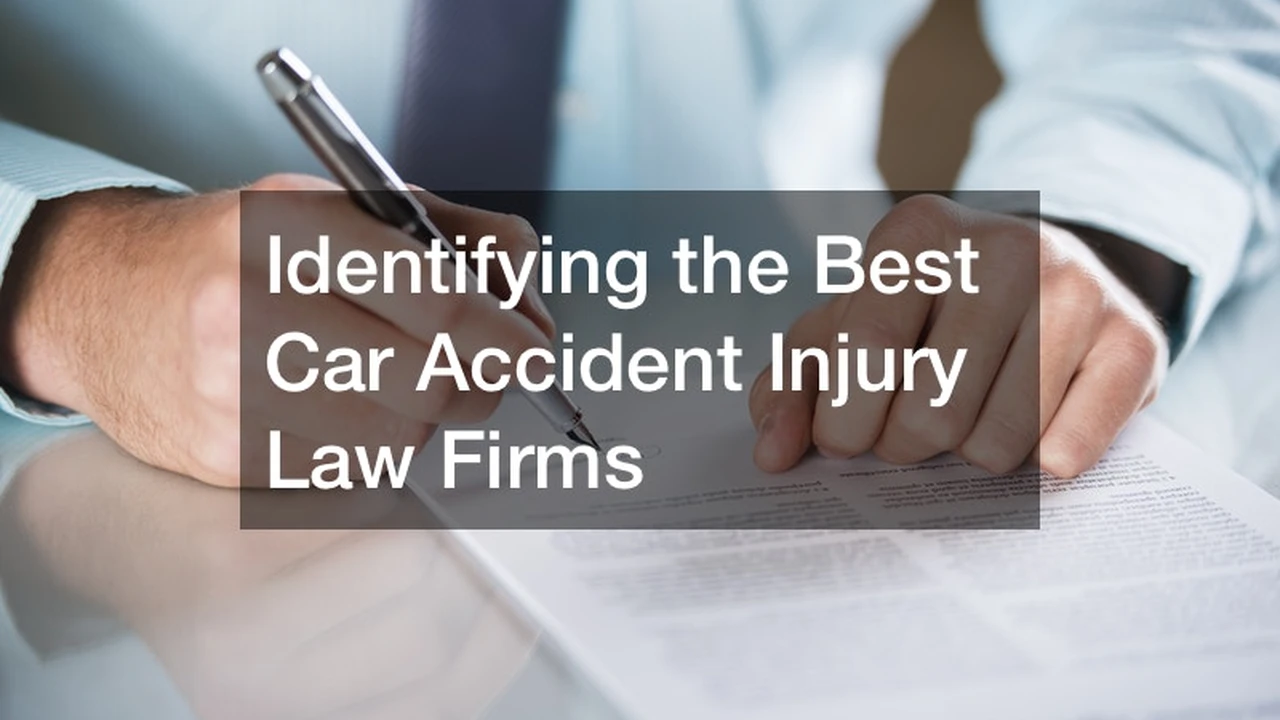7 Best Car Insurance Companies for Accident Claims in the US
Sample meta description.

Understanding Car Insurance Claims and Why Choosing the Right Company Matters
Alright, so you've been in an accident. Not fun, right? Dealing with the aftermath is stressful enough without having to wrestle with your insurance company. That's why picking the right car insurance company, especially one that handles accident claims smoothly, is super important. We're talking about peace of mind here, folks! This guide dives into the best options out there, focusing on companies known for their fair and efficient claims processes.
Top 7 Car Insurance Companies for Hassle-Free Accident Claims: Our Picks
We've done the research, so you don't have to! Here are our top picks, based on customer satisfaction, claims handling reputation, and overall value.
1. State Farm: The Reliable Choice for Car Accident Claims
State Farm consistently ranks high in customer satisfaction and claims handling. They have a huge network of agents and a solid reputation for being there when you need them. They're a big player, and that means they have the resources to handle claims efficiently.
State Farm's Key Features for Accident Claims Handling:
- Large Agent Network: Easy to find local support.
- Mobile App: File claims and track progress easily.
- Good Customer Service Ratings: Known for responsiveness.
2. GEICO: The Budget-Friendly Option with Decent Claims Service
GEICO is known for its competitive rates, but don't let that fool you. They also have a pretty good track record when it comes to handling claims. They might not be the absolute *best*, but they offer a solid service at a great price, especially for safe drivers.
GEICO's Key Features for Accident Claims Handling:
- Competitive Rates: Save money on your premium.
- Online Claims Filing: Convenient and quick.
- 24/7 Claims Support: Get help anytime, anywhere.
3. USAA: The Premier Choice for Military Members and Their Families
If you're a member of the military or a veteran, USAA is a no-brainer. They consistently top the charts in customer satisfaction and claims handling. They truly understand the unique needs of military families.
USAA's Key Features for Accident Claims Handling:
- Exceptional Customer Service: Known for going above and beyond.
- Easy Claims Process: Streamlined and efficient.
- Military-Specific Coverage Options: Tailored to your needs.
4. Allstate: The Innovation Leader in Car Insurance Claims Technology
Allstate is constantly innovating, especially in the claims process. They offer features like Drivewise (telematics) and QuickFoto Claim, making it easier than ever to file and manage your claim.
Allstate's Key Features for Accident Claims Handling:
- QuickFoto Claim: Submit photos of damage for faster processing.
- Drivewise: Potential discounts for safe driving.
- Online Claim Tracking: Stay informed every step of the way.
5. Progressive: The Data-Driven Insurer with User-Friendly Claims
Progressive is known for its data-driven approach and user-friendly online tools. Their "Name Your Price" tool is popular, and their claims process is generally straightforward.
Progressive's Key Features for Accident Claims Handling:
- Online Claims Filing: Simple and intuitive.
- 24/7 Claims Support: Available around the clock.
- Snapshot Program: Potential discounts based on driving habits.
6. Liberty Mutual: The Comprehensive Coverage Provider with Solid Claims Support
Liberty Mutual offers a wide range of coverage options and a solid reputation for claims handling. They might be a bit pricier than some of the others, but their comprehensive coverage and reliable service can be worth the extra cost.
Liberty Mutual's Key Features for Accident Claims Handling:
- Comprehensive Coverage Options: Get the protection you need.
- Accident Forgiveness: Prevents premium increases after your first accident (in some states).
- 24-Hour Claims Assistance: Help is always available.
7. Farmers Insurance: The Community-Focused Insurer with Personalized Claims Service
Farmers Insurance focuses on building strong relationships with its customers. They offer personalized service and a commitment to community involvement. This often translates to a more understanding and helpful claims experience.
Farmers Insurance's Key Features for Accident Claims Handling:
- Personalized Service: Work with a local agent.
- Community Involvement: Strong local presence.
- 24/7 Claims Reporting: Report claims anytime.
Diving Deeper: Specific Product Recommendations and Usage Scenarios
Okay, so you know the top companies. But what about specific products? Let's look at some examples and how they might fit your needs.
State Farm's Drive Safe & Save: Usage-Based Insurance for Lower Premiums
What it is: State Farm's telematics program. It tracks your driving habits (speed, braking, mileage) and offers discounts based on how safely you drive.
Usage Scenario: You're a careful driver who doesn't drive much. Perfect for students, retirees, or anyone who wants to save money by proving they're a safe driver.
Pricing: Discounts vary based on driving habits. Typically, you'll see an initial discount just for signing up, and then further discounts based on your performance.
GEICO's Accident Forgiveness: Protection After a Mistake
What it is: GEICO offers Accident Forgiveness, which means your insurance rate won't go up after your first at-fault accident. (Availability varies by state.)
Usage Scenario: You're a generally good driver, but you're worried about making a mistake. This gives you peace of mind knowing that one accident won't drastically increase your premiums.
Pricing: Accident Forgiveness is often included in certain policy packages or can be added as an endorsement. The cost will vary based on your driving record and other factors.
USAA's Roadside Assistance: More Than Just Insurance
What it is: USAA offers comprehensive roadside assistance, including towing, jump starts, fuel delivery, and lockout service.
Usage Scenario: You want the added security of knowing that you're covered if you break down on the road. Especially helpful if you drive an older car or travel frequently.
Pricing: Roadside assistance is typically added to your policy for a small additional fee. The cost is usually less than paying for a separate roadside assistance plan.
Comparing Car Insurance Products: Features, Scenarios, and Costs
Choosing the right car insurance product is like picking the right tool for the job. Here's a quick comparison to help you decide:
| Product | Company | Key Features | Best For | Estimated Cost |
|---|---|---|---|---|
| Drive Safe & Save | State Farm | Telematics, Safe Driving Discounts | Careful Drivers, Low Mileage Drivers | Variable, Depends on driving habits |
| Accident Forgiveness | GEICO | Protects Rates After First Accident | Drivers Concerned About Mistakes | Varies by state and driving record |
| Roadside Assistance | USAA | Towing, Jump Starts, Lockout Service | Frequent Travelers, Older Cars | Small additional fee to policy |
| Gap Insurance | Many Companies | Covers the difference between loan balance and car's value | New Cars, Financed Vehicles | Varies, typically a few dollars per month |
Understanding Policy Add-ons: What Else Should You Consider?
Beyond the basics, consider these add-ons to tailor your car insurance to your specific needs:
- Uninsured/Underinsured Motorist Coverage: Protects you if you're hit by someone without insurance or with insufficient coverage.
- Collision Coverage: Pays for damage to your car, regardless of who's at fault.
- Comprehensive Coverage: Covers damage from things like theft, vandalism, fire, and natural disasters.
- Rental Reimbursement: Pays for a rental car while your car is being repaired after an accident.
Tips for Filing a Car Insurance Claim: A Step-by-Step Guide
Knowing what to do *after* an accident is crucial. Here's a quick guide:
- Ensure Safety: Check for injuries and move your car to a safe location.
- Call the Police: File a police report, especially if there's significant damage or injuries.
- Exchange Information: Get the other driver's name, contact information, insurance details, and license plate number.
- Document the Scene: Take photos of the damage to all vehicles involved, as well as the surrounding area.
- Contact Your Insurance Company: Report the accident to your insurance company as soon as possible.
- Cooperate with the Adjuster: Provide all necessary information and documentation to the insurance adjuster.
- Get Estimates: Obtain multiple estimates for the repair of your vehicle.
- Review the Settlement Offer: Carefully review the settlement offer from the insurance company before accepting it.
Navigating the Claims Process: Common Pitfalls and How to Avoid Them
The claims process isn't always smooth sailing. Here are some common issues and how to avoid them:
- Lowball Offers: Insurance companies may try to offer you less than what your claim is worth. Be prepared to negotiate.
- Delays: Claims can sometimes take longer than expected. Stay in communication with your adjuster and follow up regularly.
- Coverage Disputes: Your insurance company may dispute whether your policy covers a particular type of damage. Know your policy and be prepared to fight for your rights.
Negotiating with Insurance Adjusters: Tips and Strategies for a Fair Settlement
Negotiating with an insurance adjuster can be intimidating, but it's important to advocate for yourself. Here are some tips:
- Be Prepared: Gather all relevant documentation, including police reports, medical records, and repair estimates.
- Know Your Policy: Understand what your policy covers and what your rights are.
- Be Polite but Firm: Maintain a professional demeanor while standing your ground.
- Document Everything: Keep a record of all communication with the insurance adjuster.
- Don't Be Afraid to Appeal: If you're not satisfied with the settlement offer, you have the right to appeal.
The Future of Car Insurance Claims: Technology and Innovation
The car insurance industry is constantly evolving. Here's a glimpse into the future:
- AI-Powered Claims Processing: Artificial intelligence is being used to automate and speed up the claims process.
- Telematics and Usage-Based Insurance: Telematics data is being used to personalize insurance rates and improve driving safety.
- Self-Driving Cars: The rise of self-driving cars will likely lead to significant changes in the car insurance industry.
:max_bytes(150000):strip_icc()/277019-baked-pork-chops-with-cream-of-mushroom-soup-DDMFS-beauty-4x3-BG-7505-5762b731cf30447d9cbbbbbf387beafa.jpg)






